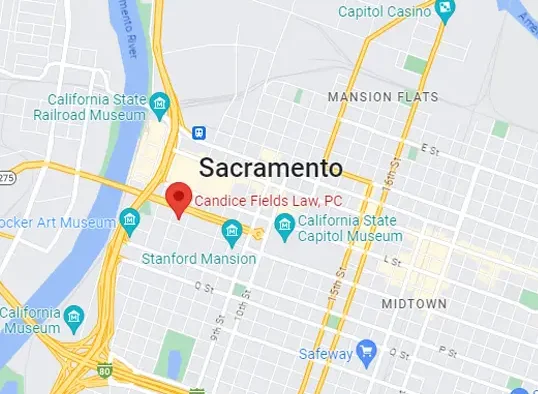What To Expect at a Federal Court Arraignment and Bail Hearing
When you or a loved one faces federal criminal charges, understanding what happens during arraignment and bail proceedings is crucial. At Candice Fields Law, PC, we guide clients through every step of the federal criminal case process, ensuring they know what to expect and helping them prepare for these critical early court appearances.
Need legal assistance?
What is Arraignment in Federal Court?
An arraignment in federal court is the initial formal court appearance where a defendant is officially informed of the criminal charges filed against them. During this proceeding, which typically occurs within 72 hours of arrest for defendants in custody, a federal magistrate judge reads the charges, ensures the defendant understands their constitutional rights, determines whether they need court-appointed counsel, and asks them to enter a plea of guilty, not guilty, or no contest. The judge also makes preliminary decisions about detention or release conditions and sets dates for future proceedings. While brief—usually lasting 15-30 minutes—the arraignment is a crucial step that formally begins the federal criminal case and establishes important procedural protections for the defendant.
What is Bail in Federal Court?
Bail in federal court is a legal mechanism determining whether a defendant will be released from custody while their criminal case is pending, and under what conditions. Unlike state courts that often use money bail, the federal system follows the Bail Reform Act, which requires judges to release defendants under the least restrictive conditions to ensure court appearance and public safety or order detention if no conditions can reasonably guarantee these outcomes. Federal judges consider factors such as flight risk, danger to the community, the nature of charges, the defendant's ties to the community, criminal history, and financial resources when making bail determinations. The decision is typically made during a detention hearing ,where both prosecutors and defense counsel present evidence and arguments about whether the defendant should be released or detained.
What To Expect at Your Federal Arraignment Process

Understanding the federal arraignment process is crucial for anyone facing federal criminal charges. This initial court appearance sets the foundation for your entire case. Here's what you need to know about the key elements of a federal arraignment:
- Timing of Arraignment: Occurs within 48-72 hours of arrest for those in custody, or as scheduled by the court for those who received a summons to appear
- Constitutional Rights Review: The judge formally advises you of your constitutional rights, including the right to counsel and the right to remain silent
- Charge Presentation: The court reads the formal charges against you, though defendants often waive this reading to save time
- Plea Entry: You must enter an initial plea of guilty, not guilty, or no contest in response to the charges
- Identity Confirmation: The court verifies your identity and ensures you understand the nature of the proceedings
- Counsel Determination: The judge confirms whether you have retained counsel or need court-appointed representation
- Language Assistance: If needed, the court provides certified interpreters to ensure you understand the proceedings
- Preliminary Bail Discussion: The judge addresses initial detention or release conditions, though a separate detention hearing may be scheduled
- Schedule Setting: The court establishes dates for future proceedings, including status conferences and motion deadlines
- Discovery Timeline: The judge sets initial deadlines for the government to provide evidence to the defense
- Travel Restrictions: The court may impose limitations on your movement pending trial
- Contact Prohibitions: You may receive orders regarding contact with potential witnesses or co-defendants
What To Expect At Your Federal Bail Proceedings
The federal bail process differs significantly from state court proceedings and follows specific guidelines under the Bail Reform Act. Understanding these proceedings is crucial for anyone facing federal charges. Here's a comprehensive overview of what you need to know:
- Initial Detention Decision: Within hours of arrest, a federal magistrate judge makes an initial determination about temporary detention or release until the formal bail hearing
- Pretrial Services Interview: A federal officer conducts a detailed background investigation, reviewing your history, community ties, and potential release conditions
- Release Options Available: The court may consider release on personal recognizance, unsecured bond, conditional release, or may order detention until trial
- Detention Hearing Timing: If the government requests detention, a hearing must occur within 3-5 days of the initial appearance, giving defense counsel time to prepare
- Burden of Proof: The government must prove either danger to the community or flight risk by clear and convincing evidence to justify detention
- Presumption Cases: Certain serious drug offenses and violent crimes carry a presumption of detention, shifting the burden to the defense to prove release is appropriate
- Factors Considered: Judges evaluate the nature of charges, weight of evidence, community ties, criminal history, employment status, and family connections when making bail decisions
- Release Conditions: If released, the court may impose various requirements such as GPS monitoring, travel restrictions, drug testing, or regular reporting to Pretrial Services
- Financial Conditions: Unlike state courts, federal judges cannot set high monetary bonds solely to keep someone in custody
- Third-Party Custodians: The court may require a responsible person to supervise your compliance with release conditions
- Property Bonds: In some cases, the court accepts real property as security for release, requiring detailed documentation of ownership and equity
- Modification Requests: Either party can request changes to release conditions based on new circumstances or compliance history
- Appeals Process: Detention decisions can be appealed to the district court judge and, if necessary, to the court of appeals
- Violation Consequences: Breaking release conditions can result in immediate arrest, detention, and additional criminal charges
At Candice Fields Law, PC, we understand that securing pretrial release is often crucial for building a strong defense and maintaining family and employment relationships. We work diligently to prepare comprehensive release plans that address the court's concerns while protecting your rights and interests.
Protecting Your Rights at Federal Arraignment and Bail
Having skilled legal representation during your federal arraignment and bail hearing is crucial for protecting your rights and securing the best possible outcome. At Candice Fields Law, PC, we provide comprehensive support throughout these critical early proceedings. Here's how we help safeguard your interests:
- Pre-Hearing Preparation: We thoroughly review all charging documents, gather supporting evidence for release, and prepare you for what to expect during the proceedings
- Rights Protection: We ensure you understand your constitutional rights and prevent any unintentional waiver of these important protections during the arraignment
- Strategic Plea Guidance: We analyze your case facts and advise you on the most advantageous plea during arraignment, considering both immediate and long-term consequences
- Release Strategy Development: We create comprehensive release plans addressing potential court concerns about flight risk and community safety before the bail hearing
- Evidence Collection: We gather and present compelling evidence of your community ties, employment, family relationships, and other factors supporting your release
- Witness Preparation: We prepare family members or community supporters who may testify at your bail hearing about their willingness to serve as third-party custodians
- Government Opposition: We effectively counter prosecution arguments for detention by highlighting factors favoring release and proposing appropriate supervision conditions
- Release Conditions Negotiation: We advocate for reasonable release conditions that protect your rights while addressing legitimate court concerns
- Procedural Compliance: We ensure all required documentation is properly filed and all procedural requirements are met to prevent unnecessary delays
- Communication Bridge: We maintain clear communication with prosecutors, pretrial services officers, and court personnel to address concerns efficiently
- Emergency Preparation: We develop contingency plans for various scenarios that might arise during the hearings to protect your interests
- Appeal Preparation: If detention is ordered, we immediately begin preparing for potential appeals while ensuring all necessary objections are preserved
At Candice Fields Law, PC, we understand that these early proceedings often set the tone for your entire case. Our proactive approach helps secure the best possible position for defending against the charges while protecting your freedom. Contact us before your federal arraignment or bail hearing to ensure your rights are fully protected during these critical proceedings.
How To Prepare for Your Federal Arraignment and Bail Proceedings
Facing federal criminal proceedings can be overwhelming, but proper preparation can significantly impact the outcome of your arraignment and bail hearing. At Candice Fields Law, PC, we guide our clients through every step of preparation to ensure the best possible position for these crucial hearings. Here's what you should do to prepare:
- Contact Defense Counsel Immediately: Reach out to a federal criminal defense lawyer as soon as you learn about potential charges or receive a target letter, giving your defense team maximum time to prepare
- Document Collection: Gather important papers including your ID, passport, birth certificate, proof of citizenship or immigration status, and any court documents you've received
- Employment Verification: Compile recent pay stubs, employment verification letters, and contact information for your supervisor who can verify your work history and current position
- Financial Documentation: Prepare recent bank statements, tax returns, and documentation of assets and debts to demonstrate community ties and stability
- Residence Proof: Collect utility bills, lease agreements, or mortgage statements showing your stable living situation and community connections
- Family Support: Arrange for family members to attend the hearing and potentially serve as third-party custodians if required for release
- Medical Information: Gather documentation of any medical conditions, current medications, or ongoing treatments that the court should know about
- Travel Documents: Prepare to surrender your passport if requested and document any necessary upcoming travel for work or family obligations
- Personal Conduct: Maintain exemplary behavior before the hearing, avoiding any contact with potential witnesses or co-defendants
- Schedule Clearing: Arrange for time off work and childcare as needed, as hearings can sometimes last several hours
- Treatment Programs: If applicable, gather proof of participation in counseling, substance abuse treatment, or other supportive programs
- Communication Plan: Establish a clear plan for how family members can contact you or your attorney if you are temporarily detained
- Release Plan: Work with your attorney to develop a concrete plan addressing potential court concerns about flight risk or community safety
At Candice Fields Law, PC, we help you navigate each of these preparation steps, ensuring nothing is overlooked. A well-prepared presentation to the court significantly increases your chances of a favorable outcome.
Protect Your Rights in Federal Court
Don't face federal criminal proceedings alone. At Candice Fields Law, PC, we provide strategic defense from arraignment through resolution, protecting your rights at every stage. Contact us today to discuss your case and begin preparing your strongest defense.





